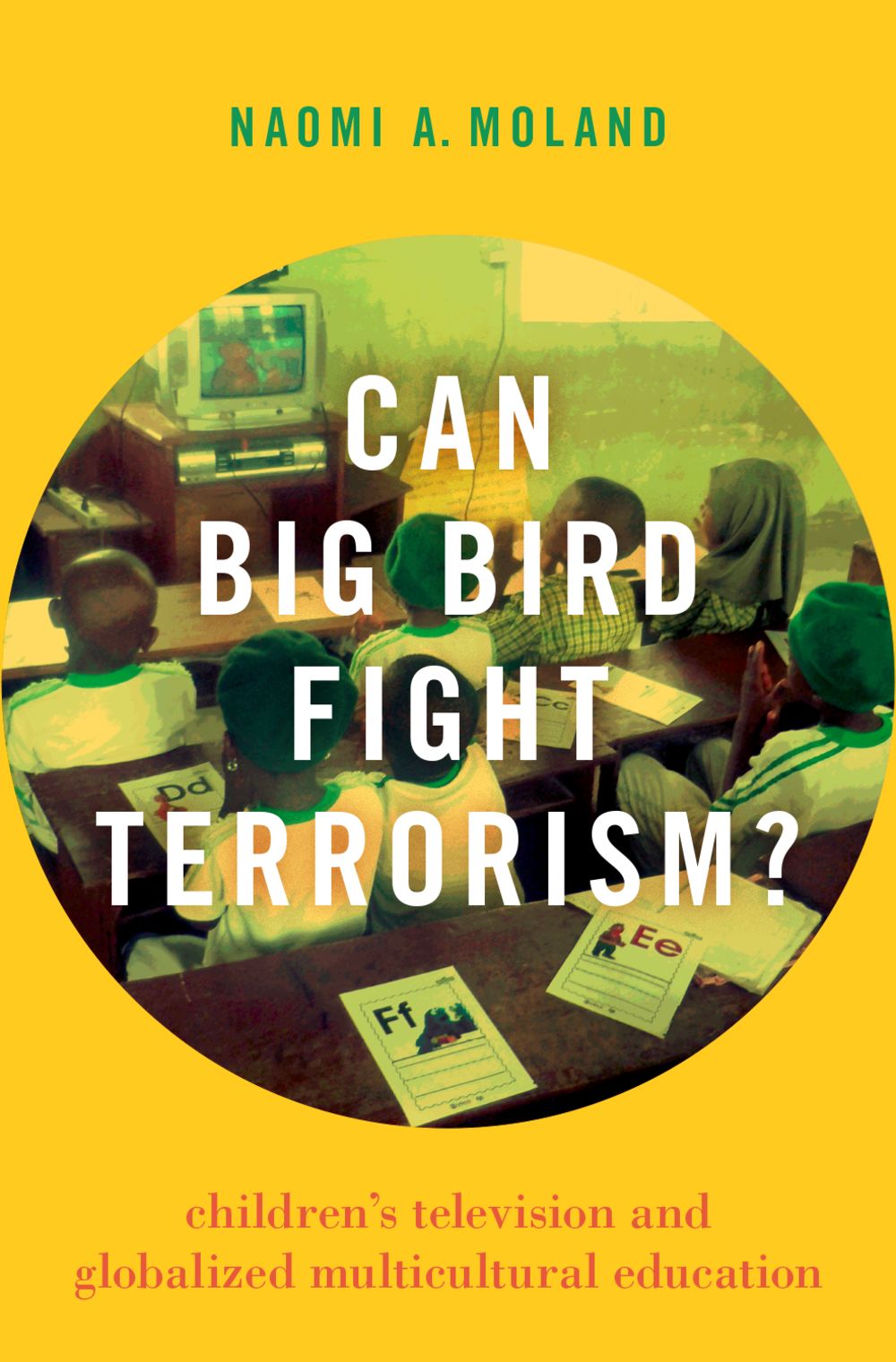Can Big Bird Fight Terrorism? Children’s Television as Globalized Multicultural Education examines how international versions of Sesame Street are working to build peace. There are more than thirty co-productions of Sesame Street, which are viewed in over 150 countries. This book focuses on the creation of Sesame Square, the Nigerian version, which is co-produced by Americans and Nigerians and funded by USAID. Sesame Square creators designed the program to teach academic skills and also to promote intergroup tolerance and peaceful coexistence. Some creators hoped that the program could help to build peace among Nigeria’s future generations and to reduce the ethnoreligious tensions that were believed to be contributing to extremism and conflict. To understand this complex undertaking, Naomi Moland spent a year interviewing Sesame Square creators, observing production processes, and conducting episode analysis.
Two key dilemmas emerged as the program’s creators designed episodes to promote peace. First, efforts to celebrate diversity sometimes inadvertently exacerbated intergroup stereotypes. As they designed episodes to recognize diversity, some Sesame Square creators reified boundaries between groups and “othered” certain target audiences. Second, the violent and unjust “public curriculum” in Nigeria—that is, what children were learning from the society around them—threatened to undermine Sesame Square’s tolerance messages. Violent activities by Boko Haram, as well as extrajudicial responses from the Nigerian government, contradicted pro-education and peace messages on Sesame Square.
These are common dilemmas in multicultural and peacebuilding efforts, but they were exacerbated in the Nigerian setting, where demographic divisions, state fragility, and ongoing violence make peaceful coexistence seem unlikely. The book examines Sesame Square as a form of American soft power designed to spread peace and American goodwill in the face of the extremist group Boko Haram, whose name means “Western education is forbidden.” It questions whether American models of multiculturalism and peacebuilding should be transplanted into contexts with very different sociocultural realities. In contexts such as Nigeria, educators may need to emphasize unity over diversity, and to teach children about hybrid identities in order to break down the “us-them” binaries that contribute to conflict.
Reviews of the Book
Journal Articles
2017
Moland, Naomi A. “Localizing Play-Based Pedagogy: Nigerian Educators’ Appropriation of Sesame Classroom Materials.” Global Education Review, 4 (3), 17-36.
2016
Neuman, Susan B. and Naomi Moland. “Book Deserts: The Consequences of Income Segregation on Children’s Access to Print.” Urban Education, 54 (1): 126-147.
2015
Moland, Naomi A. “Can Multiculturalism Be Exported? Dilemmas of Diversity on Nigeria’s Sesame Square.” Comparative Education Review, 59 (1), 1-23. Featured article.
*One of top five “most read” CER articles between May 2016 and May 2017
*Received “Honorable Mention” for the George Z. Bereday Award for best Comparative Education Review article in 2015
*Chosen as discussion article, 2016 volume of Annual Review of Comparative and International Education (Alexander W. Wiseman, editor)
Book Chapters
2017
Moland, Naomi. “Diverse Responses to Diversity: Local and Global Approaches to Educating Heterogeneous Populations.” In Wiseman, Alexander W., ed., 2016 Annual Review of Comparative and International Education. Bingley, England: Emerald Group Publishing.
2017
Moland, Naomi. “The Paradoxes of Peace Education During Escalating Conflict: Nigeria’s Sesame Square,” in Izarali, M. Raymond, Oliver Masakure, and Edward Shizha, eds., Security, Education, and Development in Contemporary Africa. London: Ashgate.
2015
Moland, Naomi. “Education in Nigeria: An Overview,” in Amoako, Emefa, ed., Education in West Africa. London: Bloomsbury.
Evaluations and Reports
2017
Neuman, Susan B., Naomi Moland, and Donna Celano. “Bringing Literacy Home: An Evaluation of the Every Child Ready to Read Program.” Association of for Library Service to Children (ALSC) and the Public Library Association (PLA).
2016
Neuman, Susan B. and Naomi Moland. “Reaching Families Where They Are: Examining an Innovative Book Distribution Project.” New York: The JetBlue Foundation.
2015
Neuman, Susan B. and Naomi Moland. “Bringing Home Early Literacy: Determining the Impact of Library Programming on Parent Behavior.” Interim Report. Washington, DC: Institute for Museum and Library Services.


